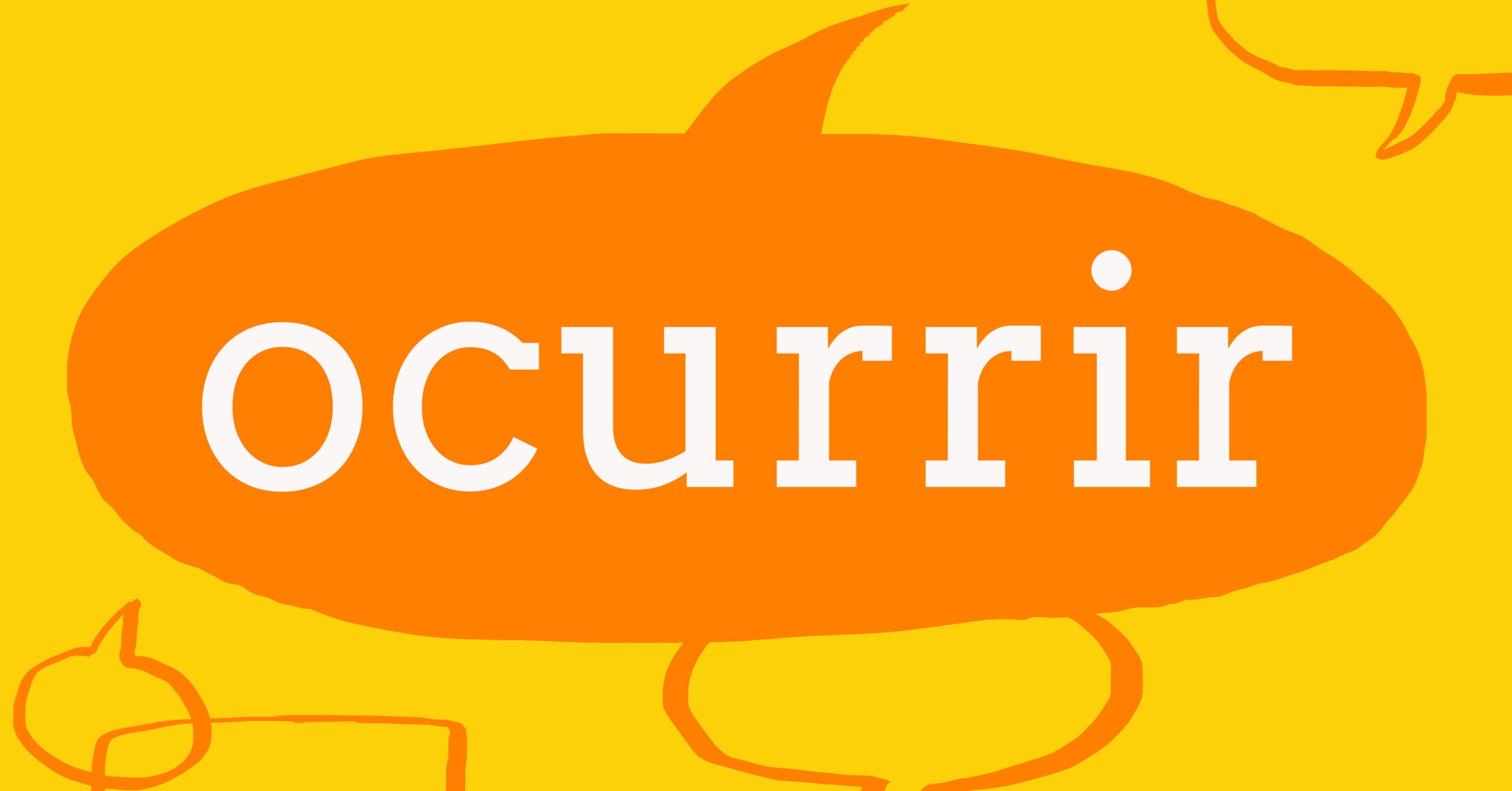This week’s Spanish word of the week is ocurrir.
Ocurrir is a verb that means to happen. You can listen to the pronunciation of ocurrir in the audio clip below:
Ocurrir is one way of saying to happen. Remember that unlike ‘occur’ it has only one letter c and two letter rs:
Lo que ocurrió podría haberse evitado. What happened could have been avoided.
Asegúrate de que no vuelva a ocurrir. Make sure it doesn’t happen again.
It’s slightly more formal than another word for ‘to happen’, pasar, which you probably already know:
¿Qué pasa? What’s happening?
It can also be used with an indirect object:
¿No le habrá pasado algo? Nothing has happened to him, has it?
And to ask if something is the matter:
¿Qué te ocurre? What’s the matter?
It’s also very often used in the phrase lo que ocurre es que …the trouble is (that) …
Lo que ocurre es que el ministro se entiende con muy pocas personas que no sean de su partido. The trouble is the minister gets on with very few people who are not from his party.
(NB: sean = subjunctive)
Come back next week for another insight into the verb ‘ocurrir‘!




collins_dictionary_official
The home of living language. #wotd #wordlovers #collinsdictionary
Read our word of the week definitions and blog posts: